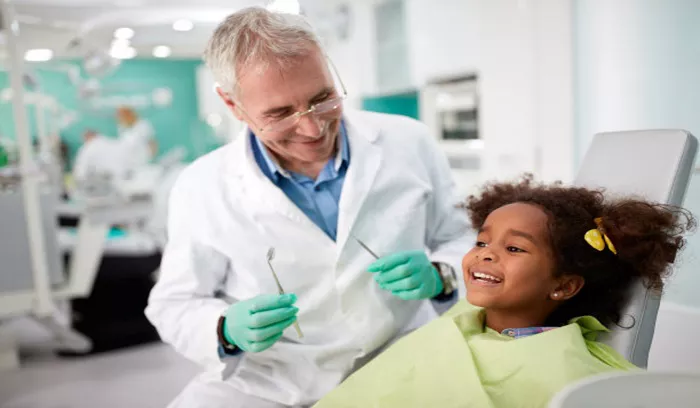Maintaining good oral hygiene is essential for children’s health, and choosing the right toothbrush plays a significant role in achieving this goal. Parents often wonder whether electric or manual toothbrushes are more effective for their children. At York Children’s Dentistry, we understand the importance of this decision and aim to provide parents with the information they need to make an informed choice. This article will explore the benefits and drawbacks of both electric and manual toothbrushes for children, helping you decide which option is best for your child.
Understanding the Importance of Proper Oral Hygiene
Why Oral Hygiene Matters
Good oral hygiene is crucial for children’s overall health. It helps prevent cavities, gum disease, and bad breath. Establishing a routine of proper brushing and flossing at an early age sets the foundation for a lifetime of healthy teeth and gums. According to the American Dental Association (ADA), children should start brushing their teeth twice a day as soon as their first tooth appears.
The Role of Toothbrushes in Oral Care
Toothbrushes are essential tools in maintaining oral hygiene. They help remove plaque, food particles, and bacteria from the teeth and gums. The effectiveness of a toothbrush can significantly impact a child’s ability to keep their mouth clean. Thus, selecting the right type of toothbrush—electric or manual—can influence your child’s dental health.
Manual Toothbrushes: Pros and Cons
What Are Manual Toothbrushes?
Manual toothbrushes are the traditional toothbrushes that require manual effort to brush teeth. They come in various shapes, sizes, and bristle types, allowing parents to choose a suitable option for their child.
Benefits of Manual Toothbrushes
Cost-Effective: Manual toothbrushes are generally less expensive than electric ones, making them a budget-friendly option for families.
Control: Children can control the pressure and technique used while brushing, which can be beneficial for those who are learning proper brushing habits.
Variety: Manual toothbrushes come in various designs, colors, and characters, making them appealing to children and encouraging them to brush.
No Batteries Required: Manual toothbrushes do not require batteries or charging, making them convenient for travel and everyday use.
Drawbacks of Manual Toothbrushes
Technique Dependent: The effectiveness of a manual toothbrush relies heavily on the user’s technique. Children may not always brush correctly or for the recommended two minutes.
Less Effective for Some: Studies suggest that manual toothbrushes may not remove plaque as effectively as electric toothbrushes, especially if the user does not brush properly.
Electric Toothbrushes: Pros and Cons
What Are Electric Toothbrushes?
Electric toothbrushes are powered by batteries or electricity. They can have various features, including timers, pressure sensors, and different brushing modes. These toothbrushes use oscillating or sonic technology to clean teeth more effectively.
Benefits of Electric Toothbrushes
Effective Plaque Removal: Research indicates that electric toothbrushes can be more effective at reducing plaque and gingivitis compared to manual toothbrushes, especially when used correctly.
Built-in Timers: Many electric toothbrushes come with built-in timers that encourage children to brush for the recommended two minutes, promoting better brushing habits.
Easier for Children: Electric toothbrushes require less effort to use, making them ideal for younger children or those with limited dexterity. The oscillating or vibrating action does much of the work.
Fun and Engaging: Electric toothbrushes often have fun designs and features that can make brushing more enjoyable for children, encouraging them to maintain a regular brushing routine.
Drawbacks of Electric Toothbrushes
Cost: Electric toothbrushes are generally more expensive than manual ones, and replacement heads can also add to the cost over time.
Maintenance: Electric toothbrushes require charging or battery replacement, which can be inconvenient for some families.
Potential for Improper Use: Children may not use electric toothbrushes correctly, leading to excessive pressure on teeth and gums, which can cause damage.
Factors to Consider When Choosing a Toothbrush for Your Child
Age and Developmental Stage
When selecting a toothbrush, consider your child’s age and developmental stage. Younger children may benefit more from electric toothbrushes due to their ease of use, while older children may prefer manual toothbrushes as they develop better brushing techniques.
Personal Preferences
Children are more likely to brush regularly if they enjoy their toothbrush. Consider your child’s preferences regarding colors, designs, and features. An engaging toothbrush can motivate them to maintain good oral hygiene.
Dental Needs
If your child has specific dental needs, such as braces or sensitive gums, consult your dentist for recommendations. Some electric toothbrushes are designed to accommodate these needs with gentler brushing modes or specialized bristles.
Parental Supervision
Regardless of the type of toothbrush, parental supervision is crucial, especially for younger children. Ensure that your child is brushing correctly and effectively, regardless of whether they use a manual or electric toothbrush.
Recommendations from York Children’s Dentistry
Start Early
Introduce your child to proper oral hygiene as soon as their first tooth appears. Whether you choose a manual or electric toothbrush, make brushing a fun and engaging activity.
Make Brushing a Routine
Establish a consistent brushing routine, ensuring your child brushes twice a day. Use songs or timers to make brushing more enjoyable and help them brush for the full two minutes.
Monitor Technique
Regardless of the toothbrush type, monitor your child’s brushing technique. Ensure they are using gentle pressure and covering all surfaces of their teeth. If using an electric toothbrush, demonstrate how to use it effectively.
Schedule Regular Dental Check-Ups
Regular dental visits are essential for maintaining your child’s oral health. Your dentist can provide personalized recommendations based on your child’s dental needs and monitor their oral hygiene progress.
Conclusion
Both electric and manual toothbrushes have their advantages and disadvantages when it comes to maintaining children’s oral hygiene. Ultimately, the best choice depends on your child’s preferences, age, and dental needs. At York Children’s Dentistry, we recommend that parents consider their child’s comfort and engagement with the toothbrush, as this will encourage consistent brushing habits.
Related topics:

